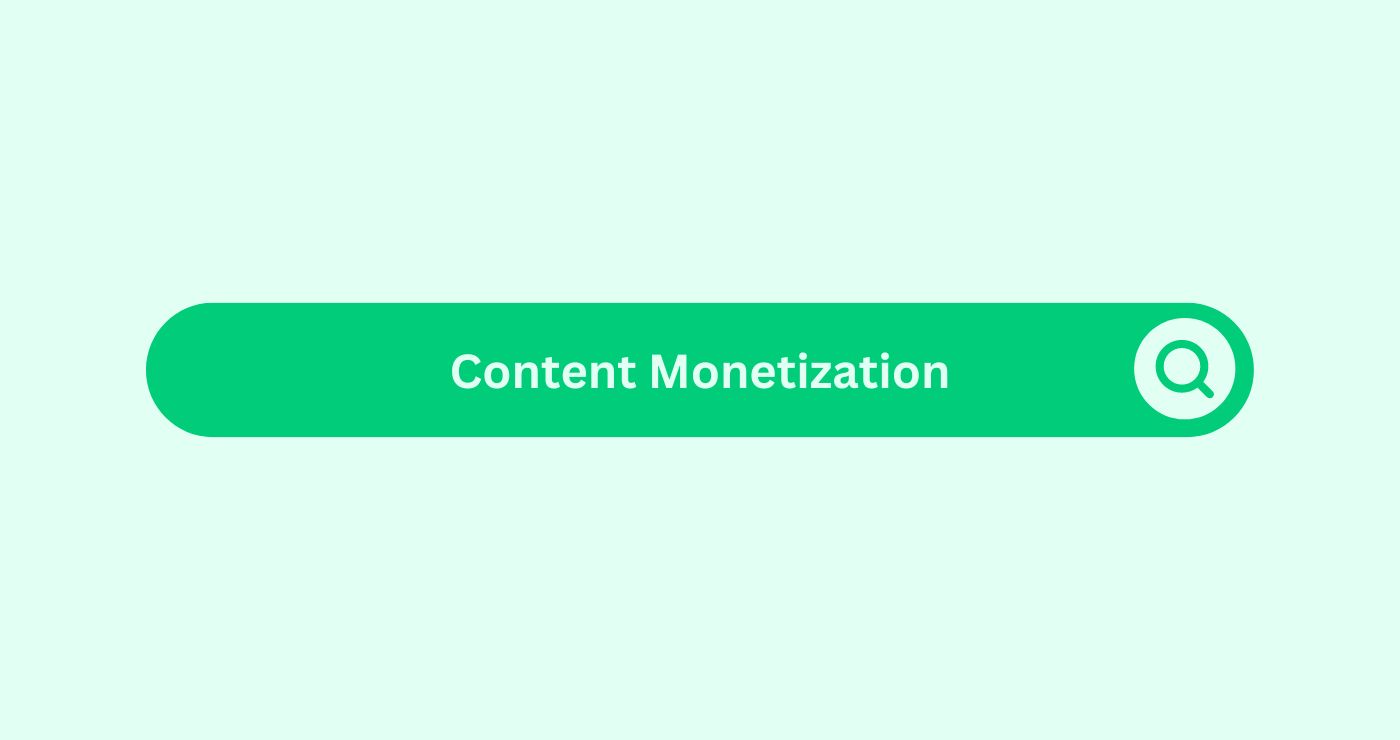Definition
Content monetisation refers to the process of earning revenue from digital content assets, such as articles, videos, podcasts, and webinars. It involves implementing various strategies and tactics to generate income through avenues like advertising, subscriptions, affiliate marketing, sponsored content, and direct sales.
Example of how you can use Content Monetisation
An example of content monetisation is a lifestyle blog that generates revenue through a combination of display advertising, sponsored content, and affiliate marketing. The blog may display ads from ad networks like Google AdSense, collaborate with brands to create sponsored posts or videos and earn commissions by promoting products or services through affiliate links.
Key Takeaways
- Diversification of Revenue Streams: Effective content monetisation involves diversifying income sources to reduce reliance on any single revenue stream.
- AudienceDefinition The term "Audience" refers to the group of indivi... More EngagementWhat is engagement in the context of content marketing? Enga... More and Value: Providing valuable, engaging content is essential for attracting and retaining audiences, and driving monetisation opportunities.
- Quality and Consistency: Consistently producing high-quality content enhances audienceDefinition The term "Audience" refers to the group of indivi... More trust and engagementWhat is engagement in the context of content marketing? Enga... More, contributing to better monetisation outcomes.
- AnalyticsDefinition Analytics in the SEO context refers to the proces... More and Optimisation: Regularly analysing performance metricsWhat are Metrics in the context of SEO? Metrics in SEO refer... More helps optimise content monetisation strategies by identifying what works best for your audienceDefinition The term "Audience" refers to the group of indivi... More.
- Ethical Considerations: Adhering to ethical standards, such as transparently disclosing sponsored content, is crucial for maintaining audienceDefinition The term "Audience" refers to the group of indivi... More trust and credibility.
FAQs
What are some common content monetisation strategies?
Common strategies include advertising (display ads, native ads), subscriptions, affiliate marketing, sponsored content, and selling digital products.
How do I choose the right content monetisation strategy for my website or platform?
Consider factors such as your audienceDefinition The term "Audience" refers to the group of indivi... More demographicsDefinition E mail demographics refers to the statistical dat... More, content niche, and engagementWhat is engagement in the context of content marketing? Enga... More metricsWhat are Metrics in the context of SEO? Metrics in SEO refer... More to determine the most suitable monetisation approach.
Is it possible to monetise content without annoying users with excessive ads?
Yes, striking a balance between monetisation and user experience is possible by using non-intrusive ad formatsDefinition In the SEO space, "formats" refer to the various ... More and limiting ad density.
How can I attract advertisers or sponsors to monetise my content?
Build a strong brand presence, audienceDefinition The term "Audience" refers to the group of indivi... More engagementWhat is engagement in the context of content marketing? Enga... More, and offer attractive sponsorship packages that align with advertisers' goalsIn the SEO space, "Goals" refer to specific, measurable obje... More.
What metrics should I track to measure content monetisation success?
Key metricsWhat are Metrics in the context of SEO? Metrics in SEO refer... More include revenue generated, conversionDefinition In the realm of SEO, Conversion refers to the pro... More rates, audienceDefinition The term "Audience" refers to the group of indivi... More engagementWhat is engagement in the context of content marketing? Enga... More, and subscriber growth.
Are there any legal considerations when monetising content?
Yes, ensure compliance with advertising regulations, copyright laws, and disclosure requirements for sponsored content.
Can I monetise content on social media platforms?
Yes, through methods such as sponsored posts, affiliate marketing, and selling digital products.
How can I protect my content from unauthorised use when monetising it?
Use copyright notices, watermarks, and legal agreements to protect intellectual property rights.
What role does SEO play in content monetisation?
SEO helps attract organic trafficDefinition In the context of SEO (Search Engine Optimisation... More, increasing visibility and potential monetisation opportunities.
How can I adapt content monetisation strategies to changing market trends?
Stay updated on industry trends, consumer behaviour, and emerging technologies to adjust your monetisation strategies accordingly.




